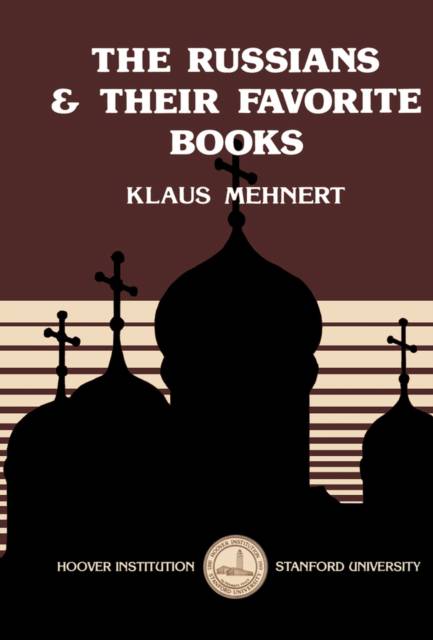
- Afhalen na 1 uur in een winkel met voorraad
- Gratis thuislevering in België vanaf € 30
- Ruim aanbod met 7 miljoen producten
- Afhalen na 1 uur in een winkel met voorraad
- Gratis thuislevering in België vanaf € 30
- Ruim aanbod met 7 miljoen producten
Zoeken
Omschrijving
Thousands of specialists throughout the world study the Soviet Union from every conceivable angle and for good reason; the policies of the USSR and the attitudes of the Soviet leaders are among the main factors that will determine the future of mankind. It is all very well for Kremlinologists to speculate about the Brezhnevs, Andropovs, and other Soveit leaders. Yet we know little about them. But is it not just as important to learn something about the Russian people? Can we perhaps know more about them? In Klaus Mehnert approaches the Russians in a highly original way. Taking as his cue the axiom, "By knowing what you read, I know what you are," he questioned Russian readers about their favorite books and authors. For one month in 1981, 1982, and 1983, he traveled through the USSR as far as eastern Siberia, "pestering," as he puts it, countless individuals, librarians, and bookstore employees about the Russians' favorite fiction. In the crucial last part of his study, Mehnert describes the authors, some of whom he knows personally, and their works in order to draw conclusions about the Russians' present mood. His discoveries are full of suprises; Why is village literature so appealing? What is the reason behind the Russians' curious fasination with a war that ended almost four decades ago? Why are so few novels about Moscow and so many about Siberia? Those who wish to know more about the Russians of today will find fascinating answers to these questions and intriguing summaries of the 111 favorite novels.
Specificaties
Betrokkenen
- Auteur(s):
- Uitgeverij:
Inhoud
- Aantal bladzijden:
- 280
- Taal:
- Engels
- Reeks:
Eigenschappen
- Productcode (EAN):
- 9780817978211
- Verschijningsdatum:
- 18/10/1983
- Uitvoering:
- Hardcover
- Formaat:
- Genaaid
- Afmetingen:
- 160 mm x 235 mm
- Gewicht:
- 680 g

Alleen bij Standaard Boekhandel
+ 25 punten op je klantenkaart van Standaard Boekhandel
Beoordelingen
We publiceren alleen reviews die voldoen aan de voorwaarden voor reviews. Bekijk onze voorwaarden voor reviews.







